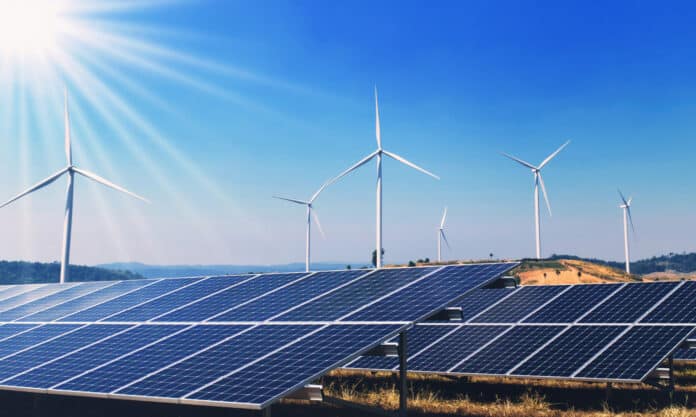A new analysis by RMI, in partnership with the Bezos Earth Fund, has revealed surging solar, wind, and battery deployment might just allow nations to achieve ambitious net-zero pathways by the end of the decade.
Solar and wind power is expected to supply more than a third of the world’s electricity by 2030, up from its current usage of around 12%. According to RMI’s forecast, solar and wind power could generate between 12,000-14,000TWh by 2030, which is 3-4 times higher than the levels in 2022. It would also surpass recent calls running up to COP28 for a tripling of total renewable energy capacity by 2030.
This exponential growth in renewable electricity has many benefits, such as security of supply and job growth, as well as countering energy price inflation. Additionally, complementary research from Systems Change Lab shows that eight countries have already grown solar and wind generation faster than what’s needed to limit global warming to 1.5°C, which proves that a rapid transition to renewable energy is possible.
The analysis also revealed that fossil fuel demand for electricity will decrease as much as 30% from the 2022 peak by 2030 as renewable electricity further outcompetes hydrocarbons on cost.
The cost of renewable electricity has plummeted over the past 10 years, overcoming a key barrier to widespread deployment. Solar and battery costs have declined 80% between 2012 and 2022, while offshore wind costs are down 73% and onshore wind costs are 57% down, BNEF data shows.
The countries and regions most responsible for this growth are China and Europe, but the Middle East and Africa are also rapidly catching up with and harnessing the global growth trend.
“The exponential growth trend in renewable electricity can be harnessed to help developing countries get ahead of the curve and transition faster to a cleaner and more affordable electricity system,” said Andrew Steer, President and CEO of the Bezos Earth Fund.
The report also highlighted how deployment rates are driving down renewable prices at an unprecedented pace, rendering higher-cost hydrocarbons uncompetitive in most markets.
“Exponential growth of clean energy is an unstoppable force that will put more spending power in the pockets of consumers. The benefit of rapid renewable deployment is greater energy security and independence, plus long-term energy price deflation because this is a manufactured technology – the more you install, the cheaper it gets,” said Kingsmill Bond, Senior Principal, RMI, in the press release.
Electricity and road transport account for more than half of fossil fuel demand and have reached tipping points in deployment to pave the way for widespread adoption.
“This is a clear signal to policymakers, businesses, and investors to seize the opportunity of accelerating the energy transition. The call to triple renewable electricity investment and capacity by 2030 is deliverable. But only by removing barriers to faster renewable deployment, from streamlining permitting to redirecting subsidies for polluting energy. Otherwise, the exponential growth we are seeing and the benefits that come with it could be derailed unnecessarily,” Christiana Figueres, Former Executive Secretary of UNFCCC and a Founding Partner of Global Optimism.
